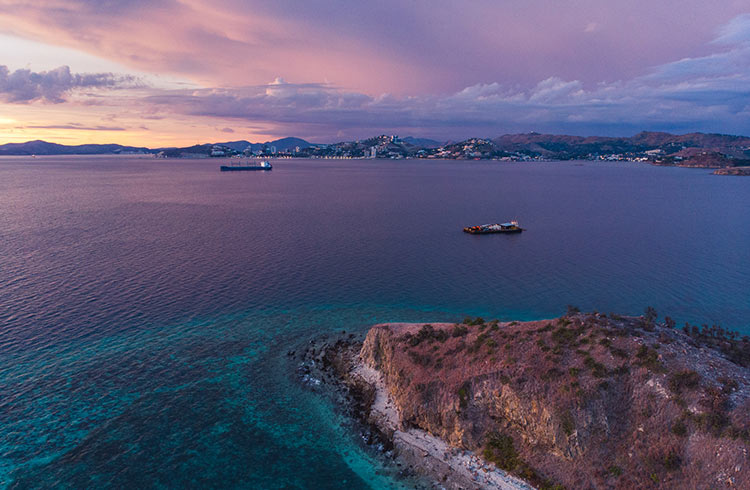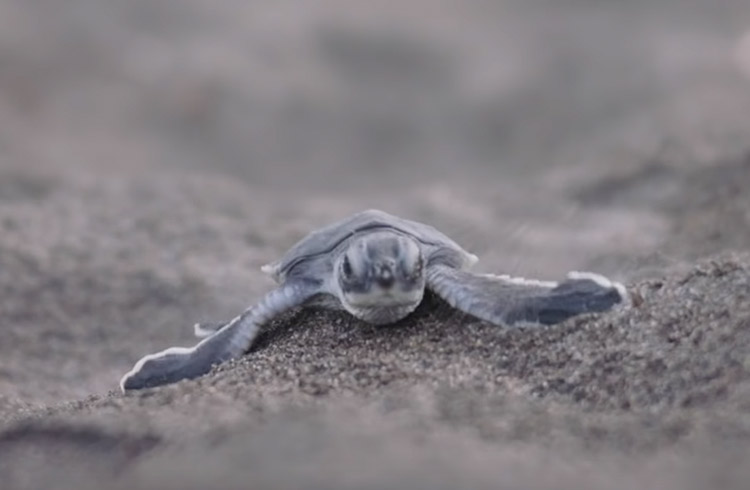Is Papua New Guinea Safe? 9 Essential Travel Safety Tips
Papua New Guinea (PNG) has some issues with crime and scams. Before you go, be aware of these potential dangers to stay safe.
 Photo © Getty Images/Chris Beavon
Photo © Getty Images/Chris Beavon
1. Crime in Papua New Guinea
There is a high risk of violent crime, assault and theft in Papua New Guinea. Be alert and aware of your surroundings at all times, and don't be flashy with valuables or clothing.
The movement of unskilled rural workers seeking employment in major urban areas has lead to ethnic and cultural frictions here. Unemployment and poverty can also lead to civil unrest and crime.
Travelers who are overt with their belongings and wealth, and are culturally insensitive to/around locals, provide constant encouragement to thieves. The best safety advice is to be sensible, culturally aware and keep a low profile.
2. Crime in Port Moresby
Port Moresby is the main entry point for international visitors.
During World War II, the settlement of Port Moresby was transformed into a huge military camp housing tens of thousands of troops. At the end of the war, urban drift began when people from almost every tribal group in Papua New Guinea and countless foreigners came to the city.
The growth of squatter settlements in Port Moresby in the 1970s gave rise to the Raskol gangs. "Raskol" is the Tok Pisin translation of the English word "rascal", and suggests the nature of the gang. Much of the crime in the capital is attributed to these gangs.
Try to get back to your accommodation early on Fridays – payday – when younger men tend to drink alcohol.
Keep clear of rowdy groups of strangers, keep your cash well hidden and keep a small amount of Raskol money in your pocket if you're held up – it's better to hand a tiny bit over than get hurt.
The easiest solution is to keep away from squatter settlements in the major urban areas if you are unaccompanied by a trusted local.
3. Car theft
Car theft is common in Papua New Guinea, and carjackings accompanied by violence towards drivers and passengers are disturbingly frequent.
Carjackings are most common in Port Moresby, Lae and Mt Hagen, especially between Nadzab airport and Lae.
In November 2010, an Australian group was carjacked while on a surfing holiday in Madang, on PNG's north coast. A woman and three male friends stopped to drop off their surfboards when they were attacked by a group of men armed with knives and guns. They were robbed, forced back into their car and driven to a secluded location where the men were tied up and the woman raped.
In January 2011, an Australian aid adviser in Port Moresby was carjacked and suffered serious injuries in the attack. The victim, a man in his 50s, was treated at Port Moresby Hospital and layer discharged and flown to Brisbane for further treatment.
In February 2011, two Australians, working in Papua New Guinea's capital Port Moresby were reportedly carjacked at gunpoint. A female media adviser with PNG's national radio station and a male law and justice adviser were separately attacked at night on the same stretch of road in a residential area popular with expatriates. According to AusAID security, there were no injuries or assaults carried out during the robbery.
4. Is it safe to drive in Papua New Guinea?
Car travel in PNG is challenging. There is no nationwide road network, and most rural roads are in a poor state of repair.
During the rainy season (November to May) landslides occur on the Highlands Highway between Lae and Mt Hagen, resulting in road closures and lengthy delays.
Severe flooding, common throughout Oro province causes significant damage to roads and bridges. Ongoing road repairs and bridge restoration can cause significant delays.
Criminal roadblocks often occur during the day and more frequently under cover of darkness. To avoid armed robbery, avoid minor or remote roads with little traffic and, wherever possible keep windows closed and car doors locked. If possible, travel in a convoy.
In Port Moresby, Police roadblocks to check vehicle registrations are a regular occurrence. To minimize difficulties, observe the same precautions you would at home. Make sure all vehicle registration and safety stickers are up to date.
5. Safe methods of transport in Papua New Guinea
If you don't drive, travel in company vehicles, use hotel transport or reputable taxis. Try to avoid using Public Motor Vehicles (PMVs), which are less reliable due to poor maintenance, and have also been targeted by criminals.
6. Civil unrest and political violence in Papua New Guinea
Local group conflicts are frequent throughout PNG. Travelers should always avoid large crowds and public gatherings, as they may turn violent unexpectedly.
In rural areas, tribal conflicts occur, usually during daylight hours. Mind your own business and the participants are unlikely to involve you.
In urban areas, townships and worksites where groups of people from different parts of the country live side-by-side, ethnic disputes inevitably arise. Disputes lead to violent and often life-threatening clashes. The atmosphere of lawlessness is usually associated with an increase in opportunistic crime.
In a crowd, keep your eyes open and move away at the first hint of violence.
7. Festival crowds vs groups of protestors
Remember that all large crowds and public gatherings are not the same.
The Mt Hagen Show attracts a local crowd of 50,000 people, drawn mainly from the Highlands provinces. Many also come from Madang and Lae, the only coastal towns with road access to Mt Hagen.
The festival was established by the colonial administration in 1964 with the aim of reducing tribal fighting, instead promoting inter-marriage and channeling inter-tribal rivalry into positive forms of competition.
The show attracts participants from all parts of PNG, including Bougainville and the Tobriand Islands. Violence is virtually non-existent.
Hundreds of travelers check out the show each year, and you should exercise normal safety precautions as you would elsewhere in the country.
8. Safety in Bougainville
Voting for independence or more autonomy in Bougainville will take place from November 23 to December 7, followed by a two-week period for the votes to be counted. The result is expected to be announced on 20 December 2019.
During this time political gatherings are expected, and travelers are warned to be extra cautious if you are in Bougainville. If the public are not happy with the outcome of the referendum, civil unrest is expected. Stay up to date with local news and media prior to traveling, or while you are there.
Bougainville is the largest island of the Solomon Islands archipelago and is currently an autonomous region of Papua New Guinea. With magnificently rugged jungle terrain, active volcanoes and pristine coral reefs, despite its relative inaccessibility, Bougainville remains a favorite among travelers.
Travelers are advised that the Panguna mine, the main factor in the brutal civil war that lasted between 1988 and 1997, is a definite no-go zone. Foreigners who entered the center without PNG Government authorization have been delayed and questioned, some for several days, and had their passports withheld on departure from the zone.
The abandoned mine is unsafe and the advice to keep out minimizes the risk of accidental injury.
9. Flying around Papua New Guinea
Due to its rugged mountainous terrain which makes navigation and landing difficult, flying in small planes is discouraged. However, the national carrier Air Niugini flies internationally, and, to all the major cities of PNG. The airline has an unblemished safety record.
Related articles
Simple and flexible travel insurance
You can buy at home or while traveling, and claim online from anywhere in the world. With 150+ adventure activities covered and 24/7 emergency assistance.
Get a quote

No Comments